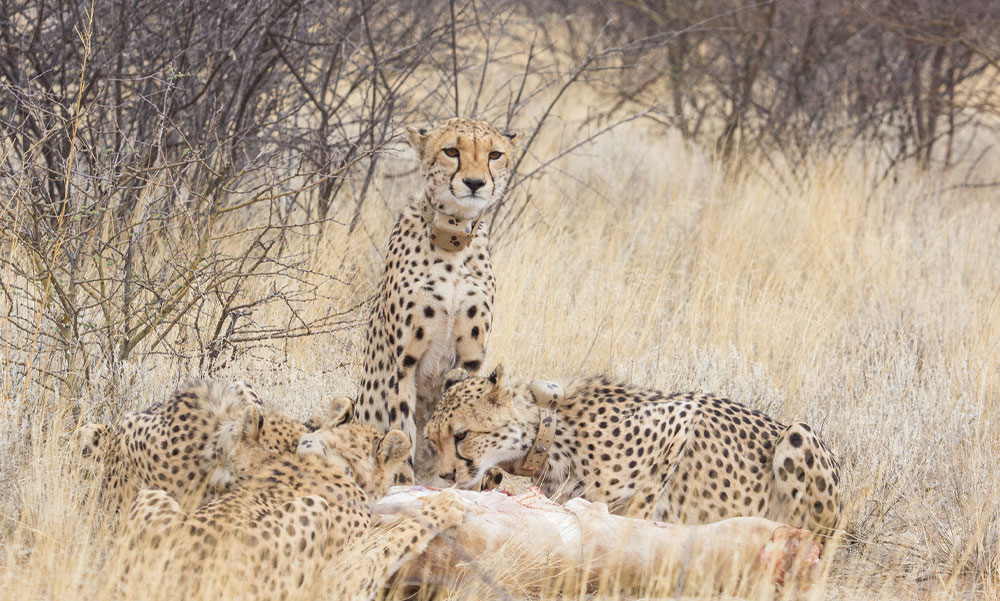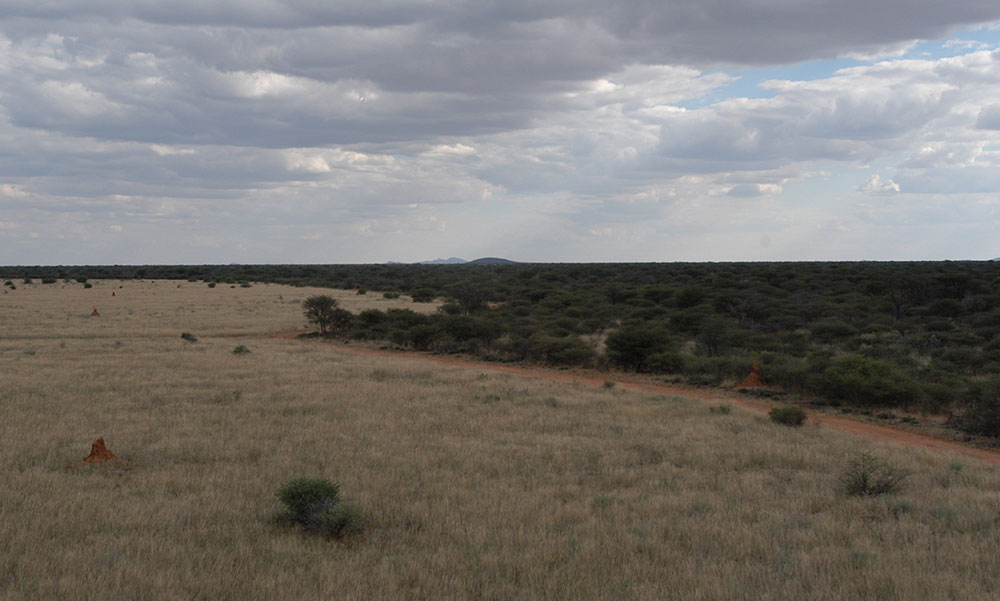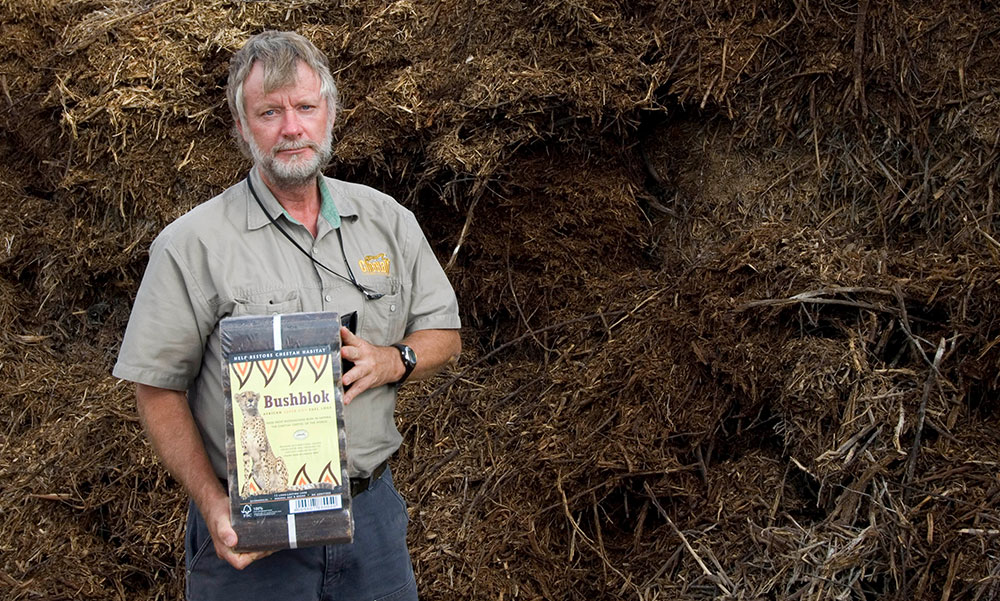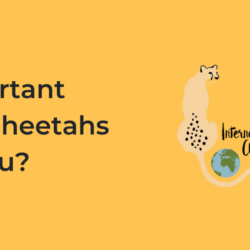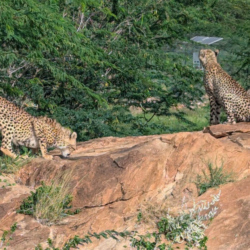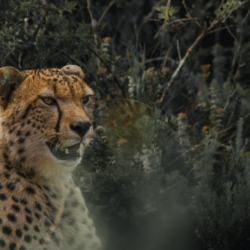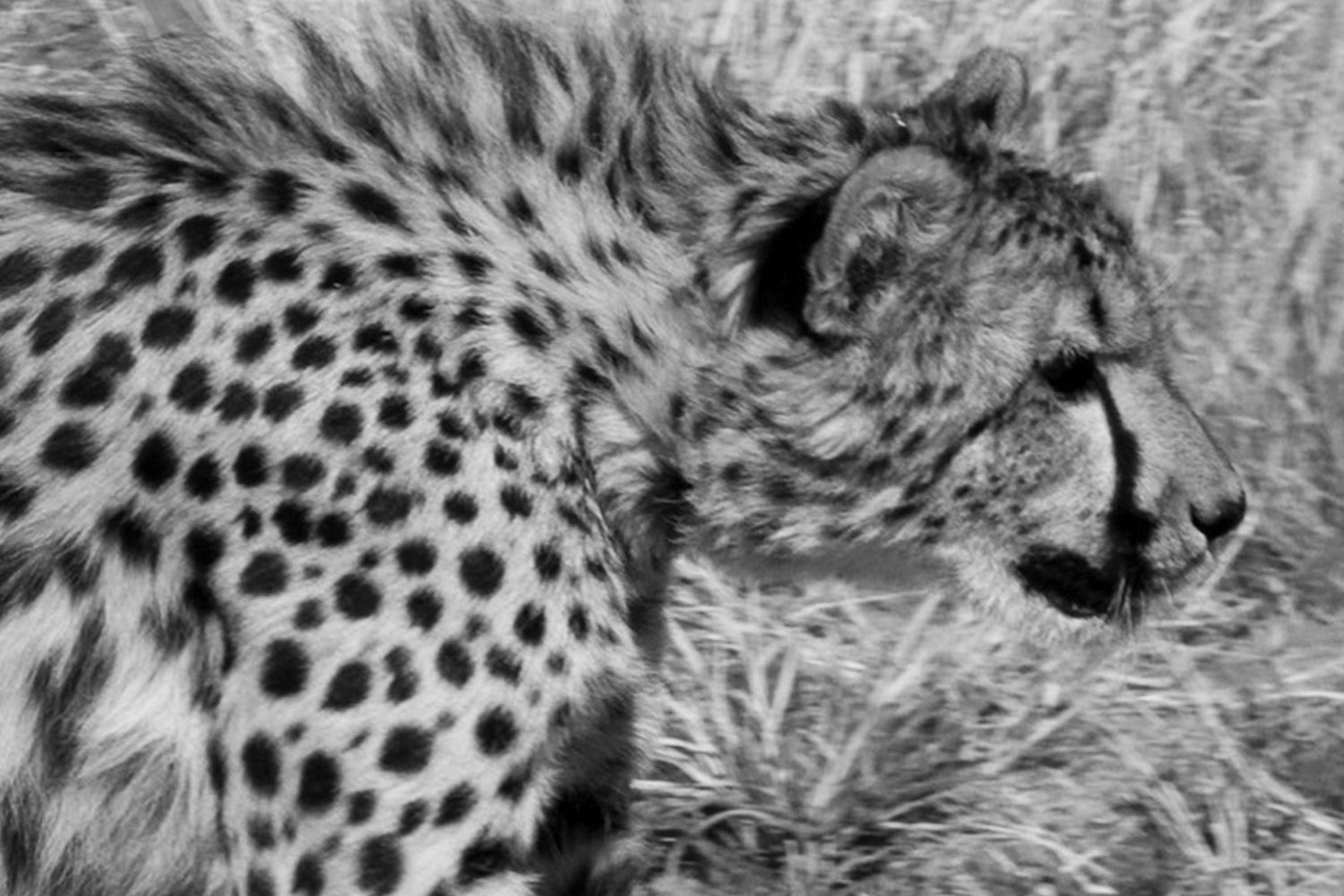Climate change and cheetahs
-

- by Hannah Mulvany 5 November 2021
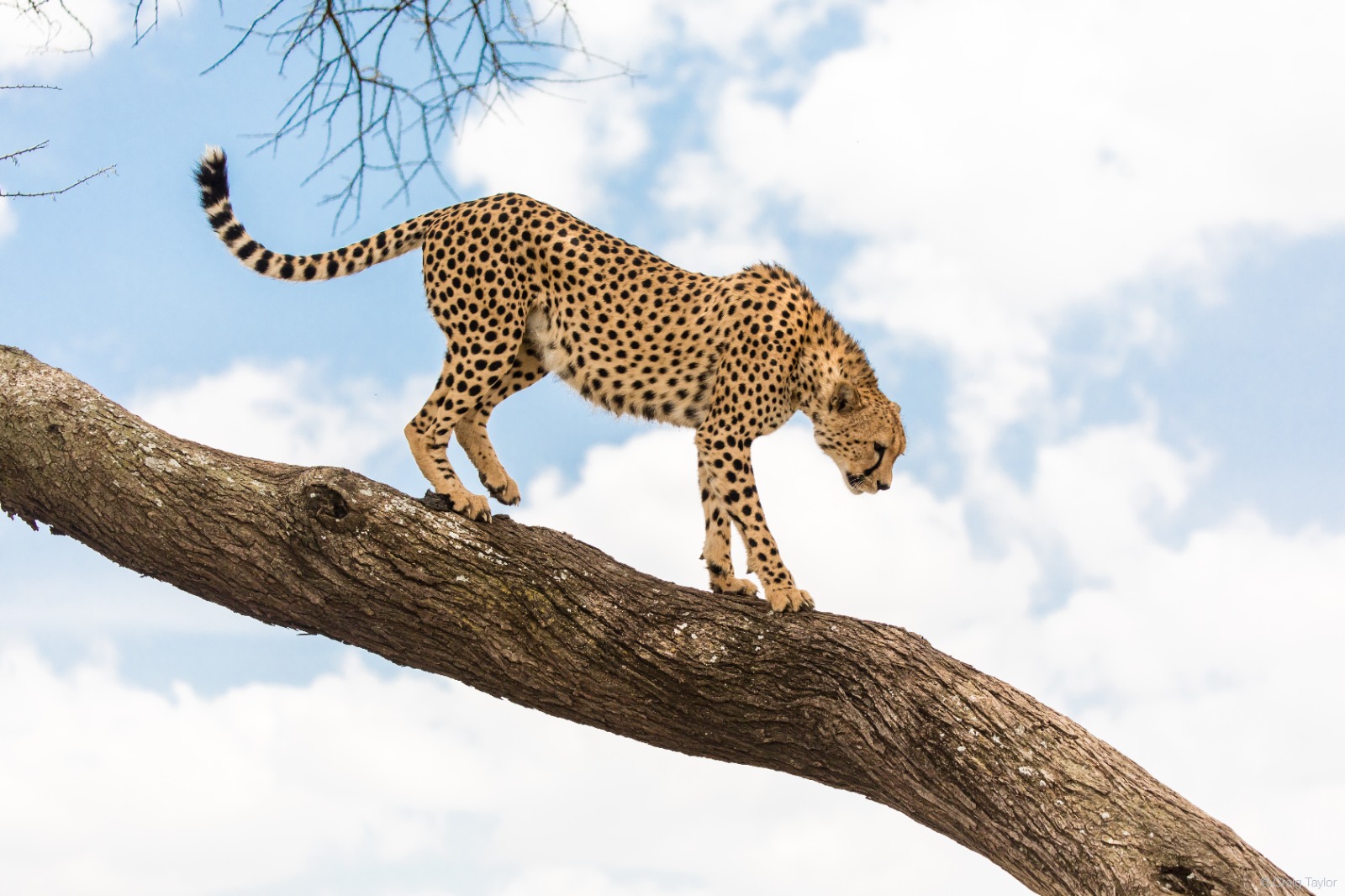
With world leaders gathering in Glasgow for COP26, we thought we’d highlight how climate change is affecting the cheetah, its ecosystem and the humans that live around it.
The three biggest threats to cheetahs are habitat loss, human-wildlife conflict due to livestock predation, and illegal trafficking of cubs to supply demand for exotic pets. All three of these are exacerbated by the effects of climate change.
Climate change poses a significant threat to all wildlife because it accelerates environmental change and puts increasing pressure on people and animals that rely on the land for a living. Cheetahs are especially vulnerable to rapid ecological and environmental change.
Climate change is a global problem, and efforts to reverse it require support at the highest levels of government. We are depending on the participants of COP26 to stick to their commitments on behalf of their citizenry.
At CCF, one of the many things we study is the ecology of the arid landscape that the cheetah calls home. We have seen the impacts of poor land management and unsustainable farming practices on the savanna, and without human intervention the degradation becomes worse over time.
In Namibia, grass is mostly eaten by livestock and wild ungulates (hoofed mammals), but the bush is less frequently consumed due to the absence large herbivorous mammals, e.g. rhinos and elephants, that would have historically eaten it. The reduction in the populations of these species has caused an unchecked flourishing of native thorn bush. As thorn bush grows, open grassland becomes inaccessible to livestock and wild ungulates, meaning there’s less available space for farmers to graze their livestock, which causes overgrazing and degradation due to a large amount of pressure on small patches of land.
Thorn bushes have very deep roots, and they tap into the water table, and from that, they grow very large. This, combined with a reduction in annual rainfall, leads to bigger problems like desertification, which is happening throughout Africa.
CCF works to remove the thickened thorn bush in managed “debushing” efforts. We found a way to use the woody waste material to create biomass fuel – Bushblok®* – an eco-friendly fuel log that is clean-burning and is a better alternative for heating and cooking than coal. Cleared habitat creates an opening for wildlife to reoccupy the land. As we reclaim land by debushing, CCF’s ecology team researches the short- and long-term effects on the distribution of animals and plants and monitors chemical changes to the soil. The research that we conduct helps build a better understanding of which conservation actions are most effective in restoring the habitat, so they can be repeated if they are successful.
Another consequence of the reduction of grassland is the decline of wild prey. As the human population grows, people live in closer proximity to predator species like the cheetah, and unfortunately, those two factors result in greater occurrences of human-wildlife conflict. CCF has developed a series of farmer education programs that emphasise predator-friendly farming techniques. Our Future Farmers of Africa training teaches good livestock, rangeland and wildlife management practices, including the use of livestock guarding dogs (LGD).
CCF’s research, and the research of many others, have shown that we still have time to make a difference toward stopping the progression of climate change. Together we are #UnitingforCheetahs to reverse habitat loss, preventing further land degradation, bolstering livelihood development, and encouraging sustainable agriculture. We still have time to save the cheetah. By doing so, we will benefit everything else that shares the cheetah’s habitat. Climate change is a big problem, and nature needs the support of government and business leaders that can offer large-scale help.
*Bushblok® is Forest Stewardship Council – FSC® certified (FSC-C004580).
Related Reading
-
30 October 2024
Meet the Bandit Group: a crew of cheetahs aged 9 to 11 months
